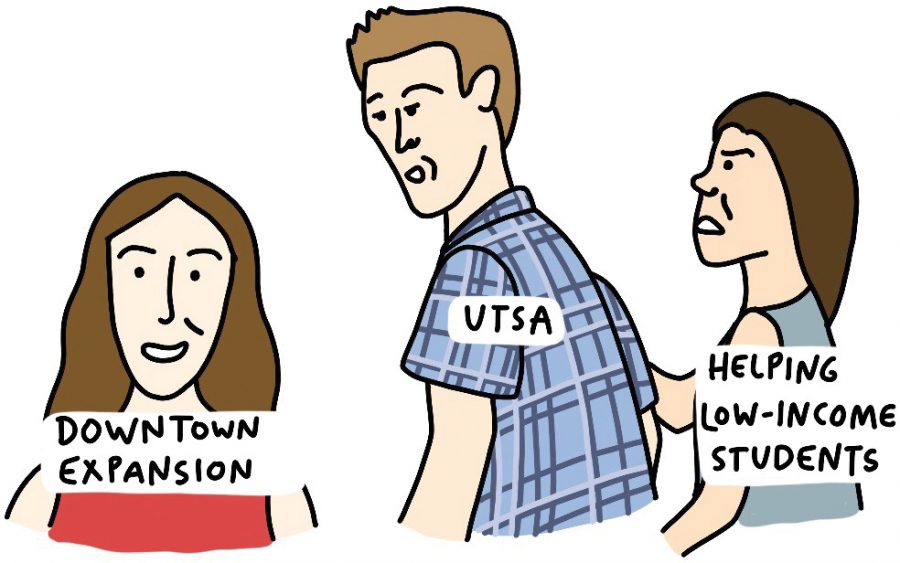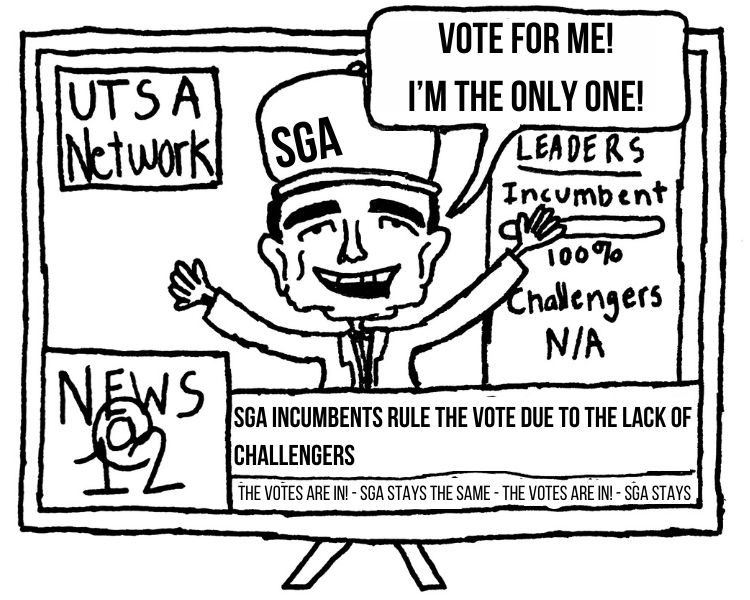UTSA needs to follow suit with universities that boldly offer tuition-free programs for low-income students. Institutions like Texas State, UT El Paso and UT Austin all proudly offer need-based programs that cover the cost of tuition for students whose median household income falls below a specified income cap. These programs typically use institutional funds to cover the cost of a student’s tuition and mandatory fees that are left over after student’s federal and state grants.
In 2017, more than 11,000 undergraduate UTSA students received federal PELL grants. Over a third of the student population demonstrated their exceptional financial needs to pay for their education. Other universities have recognized their struggling student populations, and UTSA needs to do the same.
For example, Texas State’s Bobcat Promise program offers free tuition for all Texas residents whose families make less than $35,000. UT Permian Basin’s Falcon Promise program offers free tuition for all students who have a family income below $60,000. Other UT System schools offer similar programs with income caps that range from $25,000 to $75,000.
Each of these universities evaluate the financial needs of their students and communities to ensure their students have affordable access and equal opportunity to earn an education.
UTSA has previously made efforts to remedy financial burdens for students. In Fall 2007, UTSA initiated the Undergraduate Tuition Support and Access (UTSAccess) program, which would cover the cost of four years of tuition and fees for incoming freshmen whose family incomes were $25,000 or less.
If this program still exists, then UTSA needs to proudly promote and expand it to reach a larger population of students. If the program no longer exists, UTSA needs to introduce a bold, need-based free tuition program that increases access to higher education for low-income students.












